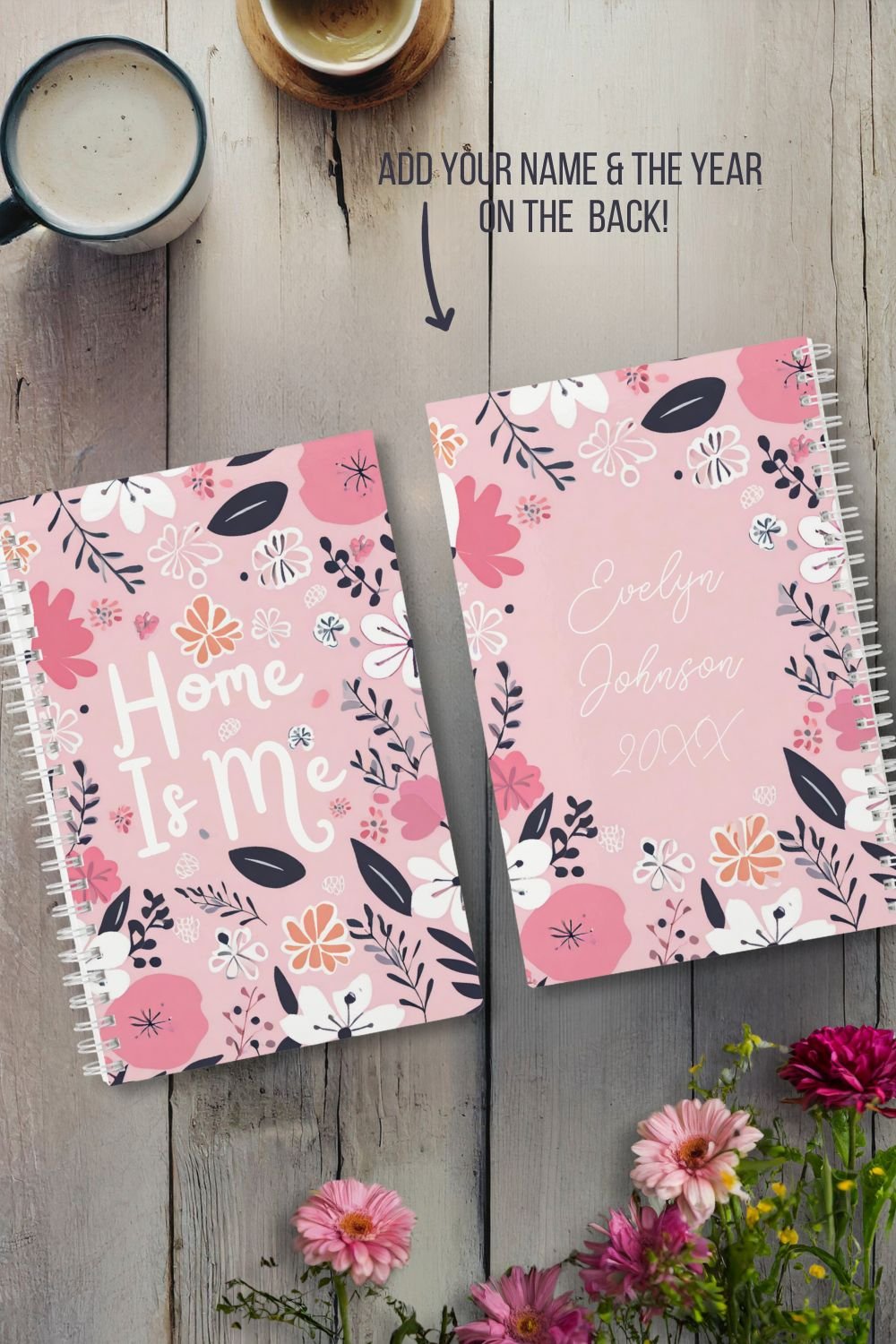Featured Entries
Your dream symbols are unique to you, but sometimes it helps to have a little guidance about what a particular symbol in a dream might mean to get you on the right path for interpreting your dream. Use the information here about water dreams as a guide, but don’t let it override your intuitive sense of the water dream’s meaning for you.
Before you read about what your water dream might mean, try answering these questions to tap into your intuitive sense of the meaning of your water dream before you’re too influenced by the information in the rest of this article. It can help to write out the answers to these questions in a dream journal.
What did the dream water look like? Was it a river, pond, lake, ocean, sea, puddle, pool, drinking water, etc.? What color was the dream water? Was there a current? Was the dream water calm? Was the dream water frozen?
Where was the dream water located? Was the dream water in a natural location for water?
Does the dream water remind you of any particular water you’ve seen before (perhaps in a movie, television show, art, real life, or a previous dream)?
We can be so used to the way that we talk to ourselves that we don’t notice when our self talk is impacting us negatively. When I really started paying attention to the way I talked to myself and questioning my self talk, I was surprised to see how unkind I was being towards myself. Working on changing my self talk was one of the first steps in my healing journey (read a little more about that here, if you’d like). Working on my self talk was part of how I learned to create safety for myself, and this felt sense of safety unlocked the door to a bigger emotional healing journey.
Paying attention to the way I talked to myself and journaling and reflecting on my self talk was very helpful to me, and I hope it will be helpful to you as well. To that end, these journal prompts for positive self talk are designed to help you take an inventory of your self talk, evaluate your self talk and explore the roots of your self talk, and make a plan for creating positive self talk.
Your body intuitively knows how to provide you with deep emotional healing & your body wants to heal you.
I’ve read a lot of things about the process of emotional healing and healing psychological trauma that I agree with and that make sense to me. But I also know that these ideas resonated with me earlier in my life at a time when I was deeply confused about how to go about the process of healing psychological trauma and desperate to get it underway. None of the things I read actually told me anything I could connect with about how to emotionally heal or what it looked like. A lot of what I read felt more like a simultaneous truth and platitude to me.
Intuition is the ability to connect with the knowledge of your body.
As Nietzsche said, “There is more wisdom in your body than in your deepest philosophy.” But, you don’t have to take a philosopher’s word for it. Scientific research backs this up. Malcolm Gladwell discusses this concept in his book, Blink. He describes an experiment in which participants have two decks of blue cards and two decks of red cards. Each card gives the participant money or takes money away. Choosing a red card sometimes awards a high dollar amount, but usually results in a large loss. In contrast, the blue cards rarely lose money and usually award a small amount of money. Before the participants became consciously aware and able to describe the pattern, their bodies began to respond to the pattern
Recent Entries
Learning more about the human shadow and how to do shadow work can be a game-changer for personal growth and development, I know it was for me, so I’ve put together this list of books about shadow work to help you learn more. You can also check out my article, What Is Shadow Work?: How Your Shadow Self Can Free You To Live Authentically and the other shadow work resources on this site.
If the concept of shadow work is completely new to you, here’s a quick introduction. Psychologist Carl Jung described the shadow as unconscious aspects of personality. These shadow parts of our personalities are not necessarily good or bad, they are simply parts of who we are that we aren’t aware of. The shadow self is composed of aspects of our personalities that it feels too scary to see. Our shadows are made up of parts of ourselves that we don’t think should be there. Our shadow self could contain desires we don’t think we should have, emotions we don’t think we should have, and needs we don’t think we should have. The idea that these aspects of our personalities are undesirable might come from childhood, our culture, or significant experiences or relationships. Shadow work is the process of learning about what your shadow contains and accepting these aspects of yourself as part of the whole that is you. In other words, shadow work is the process of bringing personality traits, desires, needs, thoughts, and emotions that were once hidden in the dark into the light.
Alright, now that you know a little bit about shadow work, let’s talk about a few books about shadow work that can help you learn more.
Sometimes as an adult, it’s easy to forget that we’re still allowed to do things just for fun. These fun journal prompts are here to help you connect with the part of you that remembers how to have fun. Fun is also a great way to get to know yourself, so maybe you’ll learn a bit about yourself while you’re at it, too!
What’s the most ridiculous thing you’ve laughed so hard you cried at?
You can travel by teleportation anywhere for one day, you have unlimited funds that can only be used for this trip, and you can take one person with you. Who do you bring? Where do you travel? What do you do?
What’s the theme song to a sitcom about your life?
What’s do you like to do that has no point other than being fun?
If you accidentally invented time travel one day, what’s the first thing you would do?
Describe your evil twin. Now, describe your angelic twin.
Who is your “fun mentor”? Who is someone you know personally, a fictional character, historical figure, or celebrity who really knows how to have fun in your opinion?
Your dream symbols are unique and personal, but it’s still helpful to explore general symbolic meanings to help you interpret your dream of getting pregnant. Use the insights here about pregnancy dreams as a reference, but remember that this information is only a guide; don’t override your own intuition about your pregnancy dream’s meaning.
Before diving into the possible interpretations of a dream of getting pregnant, take a moment to reflect on your pregnancy dream. Consider answering the questions below to connect with your own inner sense of what the pregnancy dream symbol means for you. Writing about your dream in a dream journal might also help (learn more about how to interpret your pregnancy dream in your dream journal here).
Questions for interpreting your dream of getting pregnant
What personal associations and experiences do you have with pregnancy?
How many months pregnant were you (or the pregnant person) in the dream?
What were you (or the pregnant person) wearing in the dream?
Who were the parents of the expected child in the dream?
Was there anything unusual about the pregnancy?
When was the last time you saw or read something about someone who was pregnant?
We’ll all be in need of emotional healing at multiple points in our lives. Despite the commonality of this experience, sometimes the healing journey can feel lonely and isolating. These quotes about emotional healing are here to light your way and remind you that you’re not alone in your emotional healing journey. Let’s explore the shared human experience of emotional healing with these quotes about emotional healing from scientists, novels, poets, mystics, and memoirists.
#1 Quote about emotional healing
“If you relax when the pain comes up inside your heart, and actually dare to face it, it will pass. Every single time you relax and release, a piece of the pain leaves forever.” ― Michael A. Singer, The Untethered Soul: The Journey Beyond Yourself
I love this quote about emotional healing because it rings so true to my own experience. Learning how to feel and allow the physical sensations associated with emotions - and the emotions themselves - has been an absolute game-changer for me. As this quote about emotional healing acknowledges, sometimes it’s really scary to face the emotions that come up, but learning how to work through this fear and stay with my emotions has been the single most important thing I’ve learned on my own healing journey.
I put together this list of books about healing childhood trauma based on my own experiences with healing from my childhood. The books on this reading list cover the science of trauma, how it impacts the brain, body, nervous system, and our relationship with ourselves and others. These books also provide various roadmaps and supports for healing childhood trauma. The insights in these books have formed important stepping stones on my own healing journey, and I hope that you find them helpful as well.
#1 Book for Healing Childhood Trauma - Anchored: How to Befriend Your Nervous System Using Polyvagal Theory by Deb Dana, LCSW
If there’s one thing I’ve learned on my own childhood trauma healing journey, it’s that healing really is about the nervous system. This understanding has given me patience with the healing process and with myself because I understand that I can’t just force myself to think the “right” thoughts; I have to give my nervous system time and care to heal like I would give time and care to a broken bone.
Anchored is a practical guide to understanding how your nervous system works, how you can learn to tune in to what your nervous system is doing, and how you can work with your nervous system to regulate your emotions.
Make these night affirmations into a quick, easy nighttime ritual to help guide you from the activity of the day to the peaceful rest of the evening. These night affirmations will help you cultivate emotional wellness and connect with your body and inner calm. For extra difficult days, I’ve included a few night affirmations for hard days; and, if you want to create your own night affirmations, check out the journal prompts to help you create your own night affirmations!
I notice the beautiful things from today and appreciate them.
This is my time to be with myself.
It’s safe to rest.
I did enough today.
I’m enough.
I will rest now and wake up to good things tomorrow.
Today is done. Tomorrow is a fresh start.
I’m open to the guidance that comes from my dreams.
I’m listening to what my body needs.
I turn out the lights and welcome a peaceful night of sleep.
Using one of my actual dreams, I’m going to show you the ChatGPT prompts I’ve been experimenting with for dream interpretation. Come along and see how ChatGPT did at interpreting my dream with a variety of dream interpretation AI prompts, or skip to the end and get my list of the best ChatGPT prompts for dream interpretation, ChatGPT prompts for interpreting patterns across multiple dreams, and tips for using ChatGPT for dream interpretation.
Before we get started, if you’re totally confused about how to use ChatGPT at all, let alone for dream interpretation, check out this helpful article on getting started with ChatGPT. ChatGPT is free and all you have to do to get started is go to the ChatGPT website or download the ChatGPT app and start talking to it. ChatGPT isn’t the only AI you can use for dream interpretation, you could try this out with Perplexity or another AI Chatbot, too, but I’ve been using ChatGPT the most for dream interpretation, so that’s what I’m going to focus on in this article.
Should I really be using ChatGPT for dream interpretation?
I admit to having mixed feelings about using ChatGPT for dream interpretation, but I’ve been using ChatGPT for my own dream interpretation for a while now and it’s been so interesting that I feel compelled to at least put my thoughts out there for those who might be interested in doing the same. The benefits of dream interpretation largely come from working with your conscious mind to understand the subconscious material brought up in your dream, and some ways of using ChatGPT for dream interpretation can cut that process short. It’s also easy to rely too much on what ChatGPT says about a dream because it sounds so confident! On the other hand, there have been instances where using ChatGPT for dream interpretation has helped me interpret my own dreams and provided valuable insight. It’s not outperforming my therapist, but I will continue to use ChatGPT for some dream interpretation purposes. Dream interpretation is definitely the most creative way that I’m using ChatGPT, so I recommend at least trying it out!
Journaling has been an important part of my own healing journey. For me, it’s a great way to set aside quality time to connect with myself. Journaling has helped me learn to listen to myself so that I’m better able to understand what I need. Caring for myself in this way has built an internal sense of trust that’s changed how I approach myself and the world around me.
Journal prompts for healing
I’ve written these journal prompts for healing to help you connect with yourself on your own healing journey.
Do I have ideas about what it is I need to heal from? If yes, write about what you need to heal from. If no, write down anything you know about why you feel like you need to heal.
What does it mean to heal? What would it look like if I was healed? (In other words, how would you know when you experienced healing?)
What do the culture and sub-cultures I live in tell me about healing and what it means to heal? Do I agree with these messages? What about these messages is helpful to me?
What about these messages is harmful to me?
What ideas do my friends and family have about healing? What messages do they directly or indirectly send me about healing? How do these messages impact me?
When I think about healing, what stories comes to mind? (These could be stories you’ve heard, stories from your own life, books, movies, etc.) What do these stories tell me about healing? What sounds accurate about these stories? What sounds inaccurate?
What frustrates me most about healing?
Active imagination is the process of using your imagination to communicate with deep parts of yourself that are not conscious (things you’re not aware of about yourself). Active imagination is a bit like dreaming, but you’re awake for it. Psychologist Carl Jung was the person who came up with the term “active imagination” to describe this way of working with your unconscious. Jung described different active imagination exercises, but I personally don’t think we’re limited to using the exercises Jung described when using active imagination. After all, as a psychologist, when Jung described active imagination, he was describing something natural about the way the human mind works. When I started to meditate, I found myself doing active imagination exercises without being familiar with the term “active imagination” or much of Jungian psychology. When I learned there was a name for what I was doing, I was so excited!
Using active imagination is a great way to get better at connecting with your intuition. You can read more about the benefits of connecting with your intuition here. Active imagination exercises are a good way to help your conscious and unconscious mind learn how to work together. The better these two parts of you can work together, the more complete, whole, healed, and YOU, you will feel. Active imagination can also be helpful with shadow work; we’ll talk more about that in a bit.
I’ve been interested in what my dreams mean for as long as I can remember, but learning to interpret my dreams seemed out of reach for the longest time. I didn’t know that there was a modern branch of psychology that takes dreams and the interpretation of dreams seriously, and everything I encountered about dreams and learning how to interpret dreams seemed kind of hokey and spiritually “woo woo” in a way I couldn’t connect with. Plus, taking dreams seriously is very decidedly not part of the culture I live in. The overarching cultural messages I get about dreams are statements like: “Science can’t explain dreams,” “Dreams don’t mean anything,” and, “No one knows why we dream.” These cultural messages all come with the unstated implication that dreams simply don’t matter because we don’t know why we dream. But, when we begin to learn how to interpret our dreams, it becomes clear that we can know why we dream. Dreaming is a form of internal communication that helps us stay “on track” with our deepest internal sense of who we are.
Stress is a (not so pleasant) part of life. Sometimes it feels like the way to “beat” stress is to power through and keep going until it disappears because we’ve solved whatever issue or problem is causing us stress. There’s certainly something to be said about buckling down and dealing with the concrete issue at hand, but it’s also important to take a moment to sit with our emotional experiences surrounding the stressors in our lives. It’s hard to believe in moments of stress, but – in many ways – the emotional stress response is actually separate from the thing that has us stressed out. Often, if we’re able to work through the emotional experience of stress, the underlying issue that elicited the stressful feelings disappears or becomes easier to deal with. I find that journaling helps me to sit with my emotions and work through them when I’m in need of some stress relief.
I’ve put together these journal prompts for stress relief to help you work through the emotional experience of stress and bring relaxation to your mind and body.
On a scale of 1-10 how much stress are you experiencing right now? Is this more or less stress than you feel on average?
What is stress? How do you know when you are experiencing stress? How do you know that you are experiencing stress right now?
What does this stressful experience physically feel like in your body? Where in your body do you feel the physical sensations? What do the physical sensations feel like? If you had to describe the physical sensations as colors and shapes, what colors and shapes are the physical sensations? Where in your body are the physical sensations located?
I’ve come to believe that every emotion has a purpose. If there was no purpose for an emotion, our bodies wouldn’t produce that emotional experience. Now, this definitely doesn’t mean every emotion is pleasant, and it doesn’t even mean that we accomplish the purpose of the emotion each time it arises, but I do believe that every emotion – even anxiety – arises for a good reason.
For me, anxiety served as a helpful way to block out other emotions that it wasn’t time for me to address yet. Anxious thoughts are distracting, they keep us busy and leave us with no time or energy to address deeper matters. The unpleasant physical sensations associated with anxiety are also very good at convincing us to turn around and run from what we’re feeling because anxiety feels really unpleasant to sit with.
Anxiety is a natural, protective response of the human body that we’re all capable of calling upon. But, looking at my mother and grandmother, I can see that there is definitely an intergenerational dynamic to my relationship with anxiety. Part of that intergenerational dynamic is also being completely oblivious to the fact that we have anxiety. And what a grand plan that is! If you don’t even know you’re anxious, you’re an extra step away from getting to the root of the hard things you don’t know how to address yet.
Sometimes we go around life chasing purpose like it’s something that can be checked off a list. It’s tempting to believe that we will have - or find - purpose when we accomplish some tangible thing in the outside world. I wonder, though, is purpose more of a feeling that we’re seeking? The feeling of being connected to something meaningful, or maybe just the feeling of being connected at all?
Maybe that’s the case for you, maybe it’s not, but whatever has you seeking purpose right now, I know that you have important things to say to yourself that are worth listening to.
These journal prompts to find your purpose are designed to help you reflect deeply on what it means to have purpose, why purpose matters to you, and what the drive for purpose that you’re feeling has to tell you about yourself and your life’s journey.
What does it mean to have a purpose in life?
Is it important to have a purpose in life? Why or why not?
Think of a time that you did something you felt had purpose. Write about your memory of this experience. What did you do? Why did this feel purposeful to you? What thoughts did you experience? What emotions did you experience? How did others respond to you?
What does it feel like to do something that has purpose? What other emotions do you associate with this experience? What physical sensations are associated with these emotions?
Self worth is a feeling of care, respect, and love for yourself. Let’s talk about why self worth matters, and how you can use these affirmations for self worth to work on developing your self worth. Plus, I’ll show you a couple other resources including a free printable, for improving your self worth!
I once felt confused about what self worth is and wondered why it didn’t seem confusing to other people. I remember learning about self worth in elementary school and being absolutely perplexed; we sang a song with lyrics that said, “I’m special, you’re special, too,” and I just remember thinking, “How does that even make sense?” In hindsight, I understand that my childhood experiences taught me that self worth was a bad thing to have. I also now understand that plenty of other people also find self worth to be a confusing topic.
So what is self worth? Self worth is a feeling (a felt connection) to yourself as a person deserving of care, respect, and love. One of the reasons self worth was so confusing to me was because I would have intellectually agreed that I deserved care, respect, and love, but I couldn’t feel any of that. In fact, I couldn’t feel much of anything because I was pretty disassociated and didn’t know it. There was also a whole subconscious part of me that didn’t believe I was worthy of care, respect, and love, because I didn’t experience much of that as a child. Until I could learn to connect with that part o me, the feeling of self worth was pretty elusive.
According to Plato, Socrates famously said, “[T]he unexamined life is not worth living…”. I think that’s taking it too far, but self reflection does play a very important role in living the good life. Without moments of self reflection we can find ourselves cut off from who we are and what makes like meaningful. Without sufficient self reflection, it’s all too easy to find ourselves living a life that isn’t truly aligned with who we are on a deep level. Self reflection is how we bring back to life parts of ourselves that have gone in to hiding in the face of pressure to conform and the humdrum of daily life.
There’s a line in a Rilke poem that I love that goes like this: “[T]hough we strain against the deadening grip of daily necessity, I sense there is this mystery: All life is being lived.”[1] Self reflection is part of tapping in to the heartbeat and the mystery of the life being lived inside you, so take a short break from the necessities of daily living to spend a little time with yourself with these journal prompts for self reflection.
Write about a moment in time when life felt really meaningful or fulfilling to you. Write about everything you remember about this moment including any sights, smells, sounds, tastes, and feelings that are associated with this memory. What about this moment made it feel particularly meaningful or fulfilling to you? Does this tell you anything about what makes life feel meaningful or fulfilling to you?
If your New Year’s resolution is to journal, you’re in the right place! We’re going talk about tips and tricks for making journaling your New Year’s resolution. From making a plan for journaling success in the new year to responding effectively to the hurdles along the way, we’ll cover how to incorporate journaling into your self care routine this year.
As you embark on your New Year’s resolution to journal, let’s talk about why you want to journal, what kind of journal you’ll keep, how often you’ll journal, how you’ll respond to moments of struggle, what you’ll need to get started, and what to do when your journaling plan just isn’t working.
Taking a few moments each day to connect with yourself through writing is a wonderful habit to get in to. These everyday writing prompts for your journal are designed to help you put together a daily writing routine using repeatable everyday writing prompts. If you’re looking for a unique writing prompt for each day of the year, check out this article with 365 Daily Writing Prompts.
I’m proud of myself today because…
The best thing about today was…
The hardest thing about today was…
The experience I had the strongest emotional to today was…I think I had a strong emotional reaction to this because…
Here’s one sentence to summarize my day…
I felt the most fulfilled today when…
Almost everyone dreams, but dreaming is still a bit of a mystery to all of us. Let’s explore the meaning of dreams with these quotes about dreaming from psychologists, a neuroscientist, mythologist, and classic literature. We’ll even explore quotes about dreaming from a TV series and a philosophical aeronautics engineer from the 1920s.
#1 Quote about dreaming
“Heaven and hell are within us and all the gods are within us…They are magnified dreams, and dreams are manifestations in image form of the energies of the body in conflict with each other. That is what myth is. Myth is a manifestation in symbolic images, in metaphorical images, of the organs of the body in conflict with each other.” Joseph Campbell in Joseph Campbell and the Power of Myth with Bill Moyers
Journaling about life's profound questions can offer valuable insights into your personal worldview. By gaining a deeper understanding of how you see the world, you become more aware of the reasons behind your actions and the way you approach life. Allowing your mind to explore these deeper inquiries also opens you up to the mysteries of existence and the vastness of the universe. I invite you to grab your journal and reflect on life’s mysteries with these deep philosophical journal prompts.
How do you know that an action is right or wrong? What does it mean for something to be right or wrong, ethically speaking? Is doing what is right important? Why or why not?
Is it ever ethically okay to do something wrong? If so, when is it okay to something wrong?
What is the meaning of life?
If you change over time and your cells change over time, what makes you still you?
Why is there something rather than nothing? Where did the first thing in the universe come from?
Struggling with perfectionism can be rough. Appearing “perfect” is rewarded in school, the workplace, and in plenty of other facets of life. Perfectionism provides us with the illusion that we can gain acceptance, love, belonging, and safety with hard work. But in the end, perfectionism takes a heavy toll on the body, mind, and soul, and it robs us of an authentic connection with ourselves and others.
Perfectionism has been a long-time struggle for me. I grew up in a household with a mother who used perfectionism as a coping mechanism to deal with an abusive childhood she refused to acknowledge, and she passed both the abuse and the coping mechanism of perfectionism on to me. I could still lower the standard I hold myself to (I definitely consider dealing with perfectionism an ongoing journey), but I cannot describe how freeing it was to finally “give up” and look at the reasons behind my drive for perfection rather than distracting myself with to do lists, tasks, and activities.
On the journey to let go of perfectionism, one of the early things I worked on was changing the way I talk to myself. At first, I thought all the going on about positive self talk was really hokey, but I now understand just how important talking to myself gently is. Affirmations for perfectionism were game changing for me, so below I’ve put together a few examples of positive self talk for perfectionism that I hope will be helpful to you as well!
Finding yourself often involves uncovering the things about yourself that you’ve hidden away based on messages you’ve received from the world about what is and isn’t acceptable to think, feel, do, and be. We all want to be loved, accepted, and connected to other humans. From the time we’re an infant we’re dependent on human connection for our very survival. We go throughout life with this hard-wired desire to connect and belong, and sometimes the need to connect and belong causes us to lose touch with deep parts of ourselves that we believe pose a threat to belonging and connection. Because living life as the full and complete you can feel like a threat to human connection, sometimes the journey to find yourself can be a bit scary and confusing. These journal prompts for finding yourself are designed to gently guide you through a conversation with yourself to help you re-discover the you that exists beyond the fear of what the world has to say about it.
Your dream symbols are unique to you, but sometimes it helps to have guidance about what a particular symbol in a dream might mean to get started interpreting your dream. Use the information here about snake dreams as a guide, but don’t let it override your intuitive sense of your snake dream’s meaning for you.
Before you read about what your snake dream might mean, try answering these questions to tap into your intuitive sense of the meaning of your snake dream before you’re too influenced by the information in the rest of this article. It can also help to write out the answers to these questions in a dream journal.
What did the dream snake look like? What color or colors was the snake? What size was the snake?
How was the dream snake behaving? Was the snake sitting still? Was the snake moving? If so, how was the snake moving? What was the dream snake doing? Was the snake aggressive? Was the dream snake interacting with you or anyone or anything else in the dream? If so, how was the dream snake interacting with people and things in the dream?
Where was the dream snake located? What were the surroundings like? What was the dream snake near?
When was the last time you saw a snake?
Does the dream snake remind you of any particular snake you’ve seen before (in real life, a movie, television show, art, another dream, etc.)?
What was your emotional reaction to the dream snake? If there were other people in the dream, how did they respond to the snake?
Happy birthday! These birthday journal prompts have been put together to help you celebrate yourself. As you reflect on the last year and look forward to being another year older and wiser, take a few moments to recognize how far you’ve come and spend some time meditating on what your heart wants in the coming year.
My three birthday wishes are: ____.
One thing that surprised me about being [the age you were this year] was ____.
When I think about being [age you are turning], this is what comes to mind ____.
In the last year, I learned that ____.
Something I’m proud to have accomplished this year is ____.
One thing I want to accomplish in the next year is ____.
I celebrated (or I plan to celebrate) my birthday by ____.
One thing I want to remember about this birthday is ____.
I remember when I really wanted to work on self growth, but I wasn’t quite sure how to go about it. I wish I’d understood then that self growth was already happening, but sometimes it can be hard to recognize progress! One of the first really meaningful ways I found help early in my self growth journey was through self growth tests like those I’m going to share in this article. I remember taking the Myers Briggs test and thinking, “Oh, I’m not abnormal or somehow wrong or defective; this really helps me to understand myself better.” I was fairly obsessive about it after that, and had many friends take the test and tell me their personality types. Once I knew my friends’ types, I would try to guess people’s types from observation or having them answer a few questions. I actually got pretty good at it!
Now, no personality type can describe everything about a person, but tests like this can be really helpful on the self growth journey. These self growth tests can help you learn new things about yourself, confirm things you already know about yourself, and bring together a series of disconnected ideas about who you are. All of these things can be incredibly helpful for self growth! Personality tests are also a fun way to get started with self growth because they’re pretty easy to take and the results can be amusing.
Here are a few tests that I’ve found helpful for self growth.
Sadness visits us all from time to time, and sometimes its hard to know how to help yourself when you’re feeling sad. These journal prompts for sadness are here to help you find comfort in yourself when you’re sad.
What does the sadness physically feel like in your body? Where in your body do you feel the physical sensation associated with sadness? What do the physical sensations feel like? If you had to describe the physical sensations as a color and shape, what color and shape is the physical sensation? Where in your body are the physical sensations located? How big or small does your sadness feel?
If you take deep breathes and move around a bit, do the physical sensations associated with sadness change? If so, how?
Is there a location in your body that feels nice (or neutral) right now? If so, spend a few moments breathing in and out deeply and focusing on this location in your body. Write about what this experience was like.
How movies and television shows can help build your intuition
Intuition doesn’t really speak literally, it speaks in symbolism and concepts, and some of the ways intuition expresses itself might seem a little bit strange to the modern conscious mind. If you can get comfortable with “strange” things and the use of symbolism, that will really help you on your journey to build your intuition. There are plenty of movies and TV shows that can help you increase your comfort with the strange and symbolic. I’ve put together a few ideas below to help you get started, but first let’s take a couple of mintues to explore what intuition is and why building your intuition is important.
I love reading and I love journaling, but I’m more of an emotive journal writer. That’s why I love the idea of making your reading journal a place not just to record what you read, but to reflect on what the book meant to you and what you can learn about yourself and the world around you from your reading. These reading journal prompts were created to help you explore what your reading meant to you. Let’s get started!
My favorite quote from this book is: ____. I really connected with this quote because: ____.
The character I’m most like in this book is ____, because ____.
The character I’m least like in this book is ____, because ____.
The most important thing I learned from this book is ____.












































You might think, how could you not feel your feelings. Once upon a time, that’s what I thought. See, I thought I was feeling my feelings because I’d have thoughts like: “I’m sad,” “I’m annoyed,” or, “This is enjoyable.” What else could feeling your feelings involve?
It turns out that feeling your feelings actually involves physical sensations in your body. This was news to me! Suddenly all of those literary turns of phrase like, “His chest swelled with emotion,” “Her stomach knotted up,” and, “It hit him like a punch in the gut,” made a lot more sense. I talked to a few friends about this, and they too were surprised to learn that emotions come with physical sensations.
Feeling your feelings means that you can feel the physical sensations in your body that come with emotions, name the associated emotion with your mind, and allow the emotion to show up and then fall away naturally. This is called emotional regulation, and when people talk about feeling your feelings, most of the time they’re talking about this process.
What does it mean to regulate your emotions? How is emotional regulation different from controlling your emotions?
So, emotional regulation – or feeling your feelings – is the process of noticing your feelings and then working with them to allow them to move through your body. Regulating your emotions this way allows you to consciously respond to the world with the information that you got from your emotions and from your intellectual thoughts.
I commonly hear people talk about the importance of “controlling” your emotions, and I really don’t like that phrase.